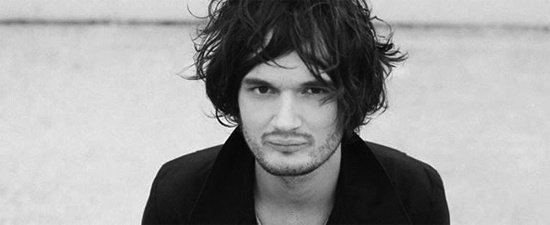It seems strange in a decade in which the web has made collaboration, mash-ups and the mining of pop’s past the order of the day, to claim that one bunch of sounds hitting people’s ears is somehow more credible or authentic than another, yet Apparat’s decision last year to ditch the dance floor in favour in of moody, washed-out comedown rock was seen in some quarters as a bit of a sell-out. The presentational difference in putting yourself front and centre in a live band rather than lurking quietly behind a MacBook also makes it very easy for detractors to complain about your ego, and Sascha Ring even had the audacity to start singing on ‘The Devil’s Walk’.
Surely though, the most successful electronic sounds of the past few years have come from a focus on what actually sounds good rather than worrying about the strictures of genre – think Burial’s decision to back up a looser form of D’n’B with a patchwork of borrowed sounds or Tim Hecker’s revealing of the simple piano-based innards of his latest full release on ‘Dropped Pianos’. Put simply, one guy with a fear of repeating himself attempting something different really doesn’t have to signal a capitulation just because he’s jumped from a slightly-newer form of music to an older one.
It’s not as if the guy’s chanelling Hendrix, anyway: the organic, acoustic bits here are all about texture. The simple, tentative guitar chime that opens ‘Your House Is My World’ tonight speaks for itself, filling the room with a pretty and modest ambience that eventually wraps itself around a voice that is slight and suggestive. On ‘Song of Los’, live percussion by a drummer with serious stamina plays off against pre-programmed beats and achieves epic while bearing in mind Berlin sensibilities. ‘The Soft Voices Die’ is built around an unfussy piano loop and cello, and when it drops out to just voice and keys, there’s a touching vulnerability on display.
Anyhow, the notion that Apparat is somehow running from techno is a little hard to swallow when you hear the 4/4 beat behind the first of tonight’s non-’Devil’ tracks. Although there’s a yawning guitar landscape thrown across the canvas, you could still move to its gated synth and oncoming-train of a percussive workout, and when the anthemic ‘Candide De La Calle’ drops later tonight it’s bolstered by a pretty dirty bass and weirdo klaxons. This track in particular is one of the best reasons I can think of for this version of Apparat, a heady fusion of structured bedroom composition and live grit. As the chorus hits, the stage lights up with artificial candles in a moment that is just unashamedly beautiful.
We’re all sat down, by the way, because this is Ether at the Southbank Centre and we’ve got chins to stroke. Maybe this is where some of the criticism comes from; Apparat touring well-to-do venues like this takes us out of the clubs in which the guy made his name and, if you got into electronic music precisely to avoid this artist-worship set-up, tonight’s theatre gig (“excuse me, can I just get past you to my seat?”) is not going to do it for you. But the arrangement is clearly working for Ring, who is gracious and smiling in between songs, and who refers to the band collectively as Apparat rather presenting this as all his own work.
They really do work as a band, too, nowhere more apparent than on the joyous ‘Sweet Unrest’, which sees live cello melt into a looping, xylophone-led playground of a track. If the aim is more organic, ‘real’ electronica, this one’s right on target, as is ‘Ash/Black Veil’, which does something to the guy on my right that means he will not sit down until the set’s over. Before an encore of mostly vocal-less gloom, there’s the elegiac ‘Escape’, which is all woozy strings and micro-beat flutters, and one of the few tracks tonight where you can properly make out what Ring is singing.
The evening ends on ‘Black Water’, unless, as Ring asks, ‘you like raving’ in which case you’re cordially invited to a 2pm DJ set at Fire (see, he still wants to dance with you!). ‘Black Water’, though, boasts a pretty wonderful line which bounces off the tasteful wooden cladding of Queen Elizabeth Hall and sticks in the brain on the way home, long after the sequenced sound of laptop-processed rain has faded. ‘We will be ephemeral’, it sings, and, you know, it’s not wrong, so we self-appointed critics would probably be well advised not to waste time telling artists what they should and shouldn’t be doing, especially when they do it this well.


